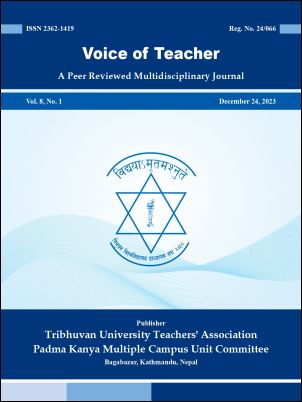Saving Habits Utilization Practices on Rural Nepal : A case study of Namobuddha Kavre
DOI:
https://doi.org/10.3126/vot.v8i1.60864Keywords:
knowledge, Saving, Utilization, practice, perceptionAbstract
Saving is a process of setting aside a portion of current income for future use. Saving is considered important for every individual because of a number of reasons. Saving helps in situations of emergency, helps in providing for family and in living a comfortable retirement. In rural areas, saving money is quite the problem because of illiteracy, lack of employment and poor access to financial institutions.
The main purpose of this research was to understand the perception of people in rural areas about their saving habits. This research was done to understand the respondents view on importance of saving and factors that might affect the saving practices of rural people. Altogether 100 samples were taken in the area of Namobuddha rural area Kavery District Rural Nepal .Face to face interview, observation method and structured questionnaire was used to collect data from respondents. The data was then analyzed to reach the conclusion. The research conducted revealed that the saving is influenced by social and cultural factors. People seemed to be conscious about the importance of saving. However, it was seen that the access of people towards commercial banks was extremely low and most of them saved their money in finances.




